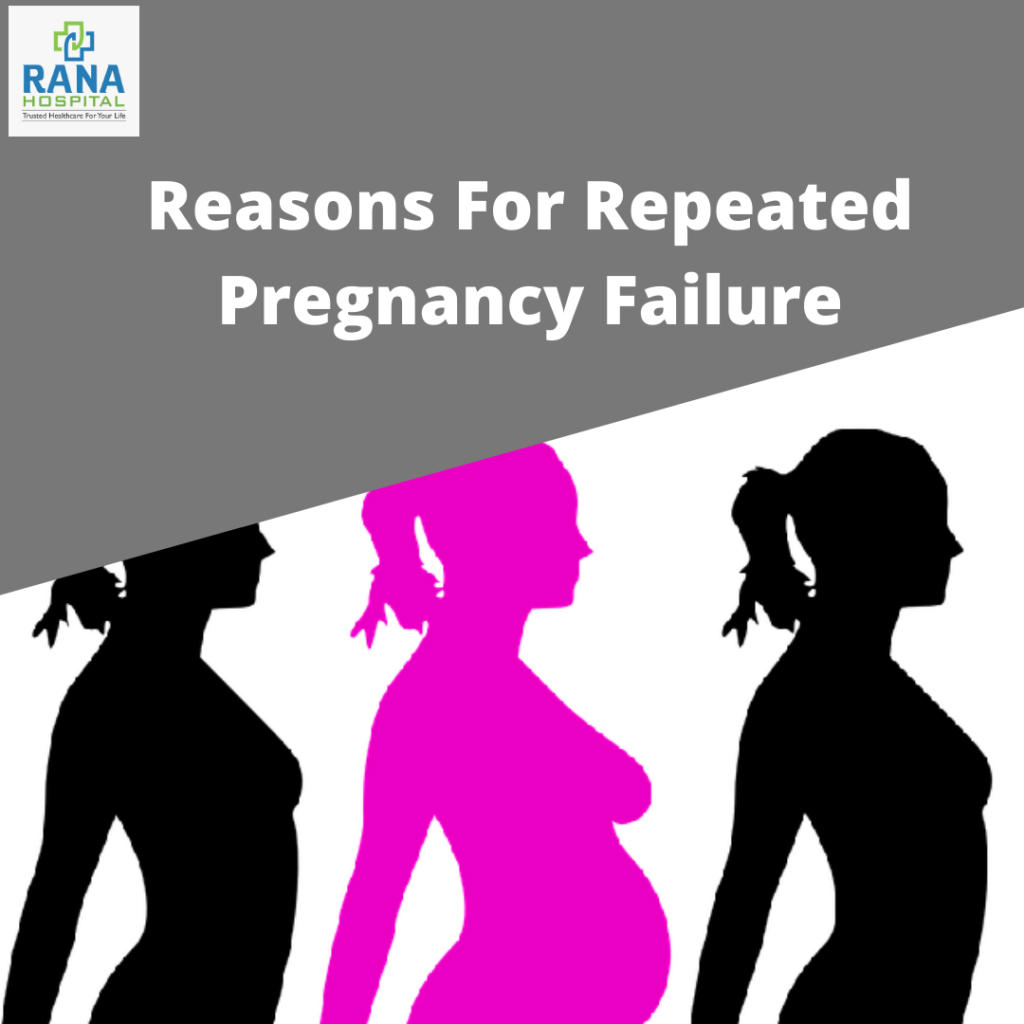Reasons For Repeated Pregnancy Failure
Three or more miscarriages are considered recurrent pregnancy loss or recurrent miscarriages. Recurrent miscarriages have an extremely low chance of occurring. Approximately 1% of women will have multiple miscarriages. It happens normally, during the first trimester of pregnancy, or the first 13 weeks. The majority of the time, this is due to chromosomal or genetic disorders with the embryo and due to anatomical issues with the uterus.

Some causes of repeated pregnancy failures that has been identified including:
- Genetic causes: Chromosomal abnormalities in the embryo are by far the most prevalent cause of spontaneous miscarriage during the first trimester of pregnancy (at least 50% of all cases), especially in women conceiving in late age.
- Antiphospholipid syndrome: (APS) is discovered approximately in 10 to 15% of women who experience recurrent pregnancy loss. This illness is one of a group of conditions called as trombophilias, characterised by excessive blood clotting.
- Abnormalities in uterine anatomy: This sort of abnormality is found in 10 to 15% of women who experience recurrent pregnancy loss. The septate uterus (a uterus with a partition-type division that divides the uterine cavity in two) is the most prevalent and has the worst prognosis of the three.
- Endocrine disorders Diabetes mellitus, thyroid dysfunction, and obesity are all endocrine disorders.
- Immunological difficulties: It obliterate the physiological ‘protection’ element that allows the mother to be receptive to the embryo and prevents the body from mistaking it for a foreign body and rejecting it.
- Male factor: Recurrent pregnancy loss may be caused by anomalies in spermatozoa development (spermatogenesis), according to recent research.
Prevalent Diagnoses & Treatment:
A history of recurrent miscarriage necessitates assessment and treatment. One or more of the following tests could be used
- Blood clotting tests, in case if you or someone in your family has had a venous thromboembolism.
- Sonography (ultrasound exam or HSG / X-ray) and anatomical testing
- Auto-immune illnesses are tested for (in cases of 3 or more losses)
- Insulin resistance, diabetes, and other endocrinopathies affecting the thyroid and pituitary glands are all tested for.
- Parents’ chromosomes are tested for balanced translocations.
Couples who have experienced a miscarriage want compassion and understanding. Early pregnancy loss, especially when it occurs repeatedly, is an emotionally painful experience. If you’ve had multiple miscarriages, contact Dr. Vijaydeep Kaur, the best IVF Doctor and Gynae at Rana Infertility Centre in Ludhiana for best advice and effective treatment. We are committed to assist you in overcoming obstacles, determining the problem, and ensuring that you have a healthy kid.





No Comments